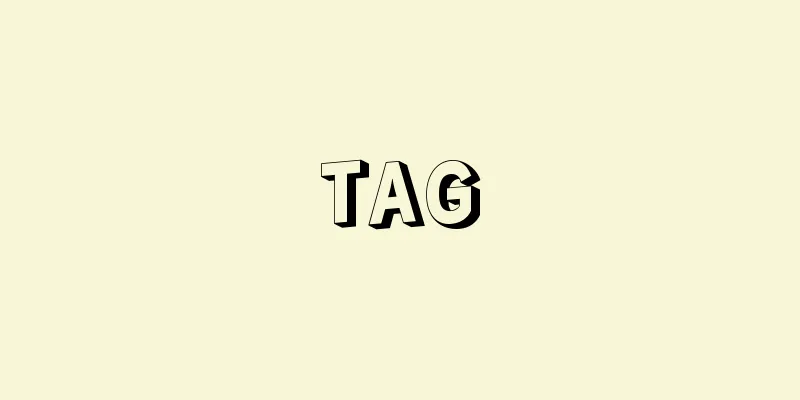Beggar -

|
The act of begging for food from others, and the person who makes a living by doing so. This is a variation of the Buddhist term "kotsujiki (begging)." In Buddhism, the act of begging for food is one of the most basic practices that monks seeking enlightenment must undertake. It is unclear at what point "kotsujiki" became "kojiki" with the "tsu" sound dropped, but the "Kohon Setsuwashu," which was created during the Insei period and was copied in the mid-Kamakura period, says, "When the snow has disappeared, go out and beg for the beggars..." Another example of "begging" outside of the ascetic practices of monks can be found early in the "Manyoshu" in "Two Poems about a Beggar," and it is thought that this "beggar" would have been read as "hokahihito." "Hokahi" is a word based on "hoku (to celebrate, to long for)," and the contents of these two poems suggest the existence of some kind of group of performers who served in the past with entertainment to celebrate longevity. The practice of providing various entertainment at gathering places such as markets and at the entrances of people's homes in exchange for food and money has been widely observed both historically and regionally, and "Hokahihito" is thought to be related to this. In addition, there is an old word for "beggar," "katai," but while "hokaihito" and "katai" overlap, they are thought to have been different concepts. "katai" originates from "kata" as opposed to "ma," and seems to have been a concept originally linked to physical disabilities. As the 1161 "Sankyoki" states, "Katai gather in flocks at Toji Temple, and beggars gather in flocks at Saiji Temple," it is thought to have been distinguished from the narrow definition of "beggars" who did not have physical disabilities. The use of "katai" is widely seen in ancient documents such as the Nihon Ryōiki, but it eventually came to be used specifically for patients with Hansen's disease (lepers), who were considered to have the most severe physical disabilities. Before the modern era, when the exclusion and isolation of "kojiki" progressed significantly, the word "kojiki" was used to refer to the above people and groups, as well as to religious people who beg for money, door-to-door performers, and even traveling merchants, based on the common theme of begging. The act of "kojiki" exists in various cultures around the world, and its existence seems to have changed in various ways, taking on the meanings of each culture regarding gifts and charity, settlers and wanderers, and wealth and poverty, while being deeply related to religion. → Related topics Mendicant Source : Heibonsha Encyclopedia About MyPedia Information |
|
食物などを他人から貰い乞う行為,またそのことによって生活を営む人をいう。仏教語の〈乞食(こつじき)〉が転じて用いられたもの。仏教では托鉢(たくはつ)して食を乞い受ける〈乞食行〉は,解脱(げだつ)を求める出家修行者がなすべきもっとも基本的な修行の一つである。〈こつじき〉がいずれの時点で〈つ〉音の脱落した〈こじき〉となったかは,はっきりしないが,院政期の成立で鎌倉中期の書写になる《古本説話集》には,〈雪きえたらばこそ,いでてこじきをもせめ……〉とある。また,僧の修行以外の〈乞食〉の例としては,早く《万葉集》に《乞食者詠二首》とみえ,この〈乞食者〉は〈ほかひひと〉と訓まれただろうと考えられている。〈ほかひ〉は〈ほく(祝く・寿く)〉に基づく語で,2首の内容からも古く寿祝芸能をもって仕えた何らかの芸能者集団の存在が想定される。市などの人の集まる場や人家の門口で種々の芸能を奉仕し,食物や金銭を得る行為は,歴史的にも地域的にも広く確認でき,この〈ほかひひと〉はそれらに連なるものと考えられる。また古く〈こじき〉をいう語に〈かたゐ〉があるが,〈ほかいひと〉と〈かたい〉とは重なりつつも別概念であったかと思われ,〈かたい〉は〈ま〉に対する〈かた〉を語源とし,もともとから身体障害性と結び付いた概念であったらしい。1161年の《山槐記》に〈肩居(かたい)は東寺に群集し,乞食は西寺に群集す〉とあるなど,身体障害を有しない狭義の〈乞食(こつじき)/(こじき)〉集団とは区別されたと考えられる。〈かたい〉の用例は《日本霊異記》など古代の文献に広く見られるが,やがて身体障害性のもっとも高いと考えられたハンセン病の患者(〈癩者〉)に特徴的に使用されるようになった。〈こじき〉の排除・隔離が格段にすすむ近代以前には,〈こじき〉の語は,物を乞うという共通項の上にたって,以上の諸人・諸集団をはじめ,広く,托鉢勧進の宗教者や門付(かどづけ)芸人,さらには旅の行商人をも含めて用いられることもあった。〈こじき〉という営みは,世界のさまざまな文化に存在し,そのあり方は,宗教と深くかかわりつつ,贈与と施し,定住者と漂泊民,富と貧困の関係についての,それぞれの文化の意味づけを担って多様に変遷してきたものと思われる。 →関連項目托鉢 出典 株式会社平凡社百科事典マイペディアについて 情報 |
Recommend
Bakumatsu Taiyoden - Bakumatsu Taiyoden
A Nikkatsu film produced in 1957. This is the mast...
seal
Abbreviation of the English word sealskin. Refers ...
Zimnik, R.
…Women include L. Gast, M. Benary-Isbert, T. Mich...
Eurylaimidae
…any of the birds of the family Eurylaimidae, whi...
avici (English spelling) avici
According to the Kusha-ron, there are first eight...
Forest Conservation - Shinrinhogo
Preventing and eliminating forest disasters. This ...
Urbon BN - Urbon BN
…It is easy to synthesize using shock waves. It w...
Equita Bill
… Meanwhile, in response to the mass production o...
Lymph heart
…Lymphatic vessels originating from the villi of ...
Kitago [town] - Kitago
A former town in Minaminaka District, southern Miy...
Obatamushi - Obatamushi
...An insect of the family Buprestidae (illustrat...
Innocho shimbun - Innocho shimbun
A document issued by the Incho, the government age...
Wang Tao
A native of the Tang Dynasty in China, he spent hi...
Exa (English spelling) exa-
SI prefix for 10 18 (100 quintillion) times the un...
Agrément (diplomacy) - agrément
...The field of "foreign policy decision-mak...




![Keihoku [town] - Keihoku](/upload/images/67cb7922bdf85.webp)




